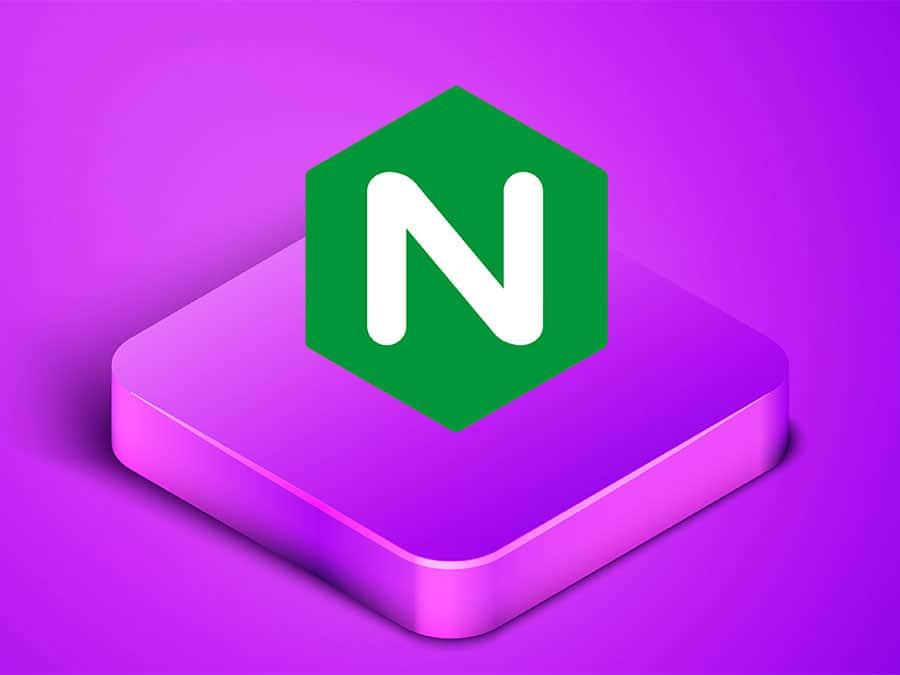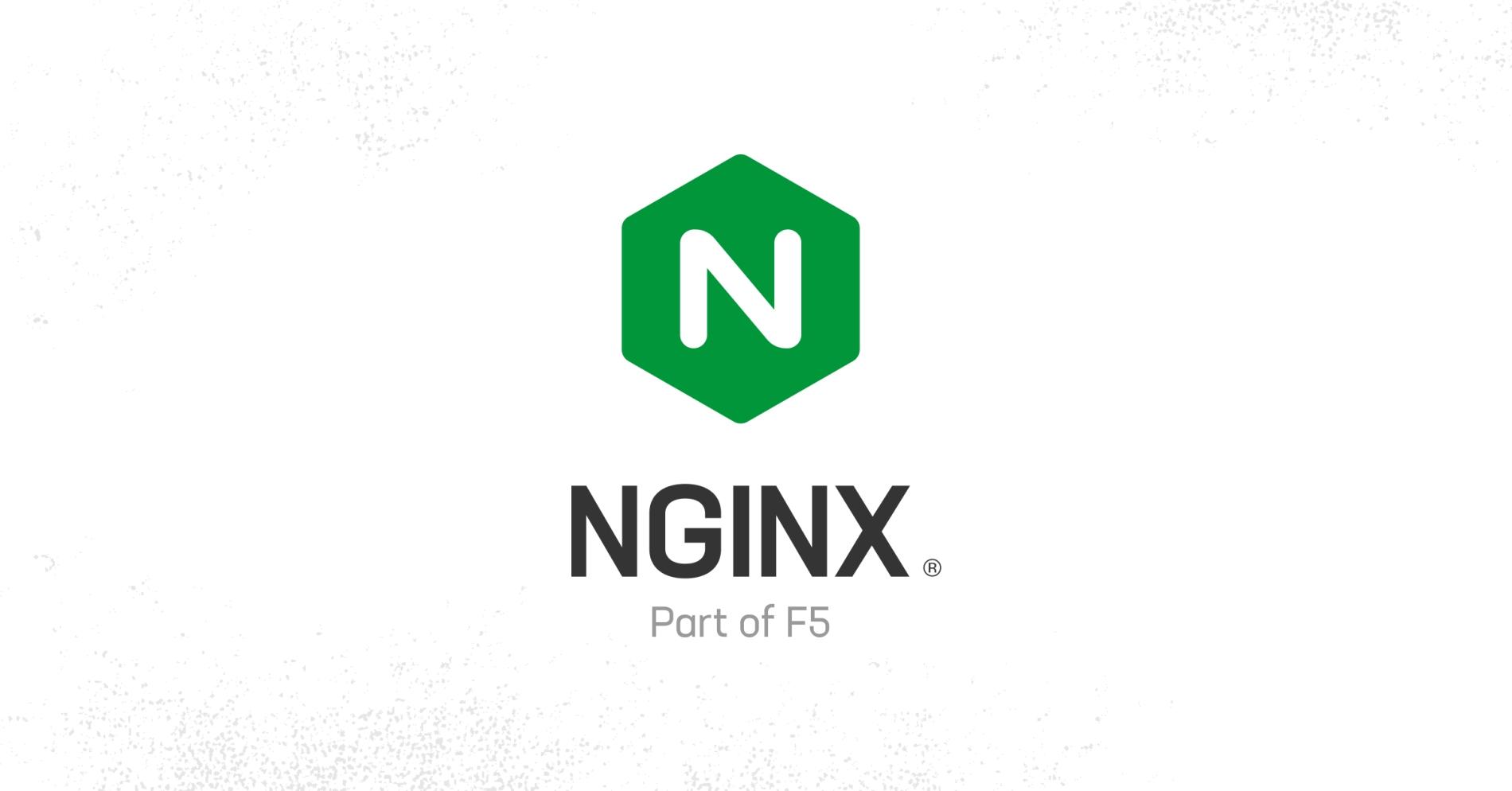When it comes to choosing a web server for your site, the debate often boils down to two heavyweights: Nginx and Apache. As we step into 2024, the landscape of web hosting continues to evolve, making it crucial for webmasters, developers, and business owners to understand the strengths and weaknesses of each option. Whether you’re launching a personal blog, managing a bustling e-commerce platform, or running a high-traffic enterprise site, the server you choose can significantly impact your site’s performance, security, and scalability. So, which one should you pick? In this article, we’ll break down the key features, performance metrics, and real-world applications of Nginx and Apache, helping you make an informed decision that aligns with your goals. Let’s dive in and find out which web server truly stands out in 2024!
Understanding the Core Differences Between Nginx and Apache
When choosing between Nginx and Apache, it’s essential to understand their core differences, as each serves different needs in web server technology. While both are powerful and popular, they come with distinct architectures and features that can influence your decision based on specific use cases.
Architecture: Nginx employs an event-driven architecture, making it highly efficient for handling concurrent connections. This allows it to serve static content faster and manage multiple connections without consuming excessive resources. Conversely, Apache uses a process-driven model, which can be beneficial for dynamic content but may result in higher memory usage under heavy traffic.
Performance: In terms of performance, Nginx shines when dealing with a high volume of requests. Its ability to handle thousands of simultaneous connections with low latency is a game-changer for heavy traffic sites. On the other hand, Apache excels in situations where .htaccess files are crucial for configuration, providing granular control over directory-specific settings.
Configuration and Flexibility: Nginx configurations are known to be straightforward and efficient, utilizing a single configuration file for server settings. This can be appealing for developers who prefer simplicity. In contrast, Apache provides extensive .htaccess support, allowing for more flexibility in individual directories, which can be particularly useful for shared hosting environments.
Module Support: Both servers offer a rich set of modules for extending functionality. Nginx supports modules that can be compiled into the server, while Apache allows for dynamic loading, giving users the flexibility to enable or disable features as needed. This can influence your choice depending on whether you favor a stable, lean server or one that can adapt more readily to changing requirements.
| Feature | Nginx | Apache |
|---|---|---|
| Architecture | Event-driven | Process-driven |
| Performance | High concurrency | Dynamic content handling |
| Configuration | Single file | .htaccess support |
| Module Support | Compiled modules | Dynamic loading |
while both web servers come with their strengths, the best choice ultimately hinges on your specific needs. Whether you prioritize speed and efficiency with Nginx or the flexibility and extensive features of Apache, understanding these core differences will allow you to make an informed decision for your 2024 web projects.
Performance Comparison: Which Server Handles Traffic Better
When it comes to handling high traffic volumes, the choice between Nginx and Apache is pivotal. Both web servers have their unique architectures, which affect how they manage simultaneous connections and serve content. Nginx is known for its event-driven architecture, making it exceptionally effective at handling many connections simultaneously. This is particularly beneficial for websites that experience spikes in traffic, such as during major sales or events.
Conversely, Apache operates on a process-based model, which can lead to increased memory usage under heavy load. This means that while Apache can still serve a substantial number of requests, it may not scale as efficiently as Nginx when traffic surges. Here’s a quick look at their performance characteristics:
| Feature | Nginx | Apache |
|---|---|---|
| Connection Handling | Event-driven, non-blocking | Process-based, blocking |
| Memory Usage | Low | Higher under load |
| Static Content Delivery | Very Fast | Fast, but less efficient under load |
| Dynamic Content Handling | Works well with FastCGI | Highly configurable with modules |
Another significant factor is how each server handles static versus dynamic content. Nginx excels at serving static files directly from the filesystem, which can drastically reduce the time it takes to load a webpage. This efficiency helps improve overall site performance, especially for content-heavy sites with lots of images, CSS, and JavaScript files. On the other hand, Apache provides robust support for dynamic content through its extensive array of modules and configuration options, making it a flexible choice for developers.
Ultimately, the choice between Nginx and Apache for handling traffic boils down to your specific needs. If you anticipate dealing with high traffic loads and require superior performance with static content, Nginx is likely the better option. However, if your website relies heavily on dynamic content and needs extensive customization, Apache’s flexibility may prove invaluable. In 2024, both servers have their place, but understanding their traffic-handling capabilities will guide you toward making the right decision for your web infrastructure.

Resource Efficiency: How Nginx and Apache Use System Resources
When it comes to web servers, the efficiency with which they utilize system resources plays a crucial role in their overall performance. Both Nginx and Apache have distinct architectures that impact how they handle requests, manage connections, and consume CPU and memory. Understanding these differences can help you make an informed choice for your web hosting needs.
Nginx is known for its event-driven architecture, which allows it to handle multiple connections within a single thread. This means that Nginx can serve thousands of concurrent requests with minimal resource overhead, making it incredibly efficient for high-traffic scenarios. Here are some of the key features that contribute to its resource efficiency:
- Asynchronous processing: Nginx uses a non-blocking I/O model, allowing it to manage connections without creating a new thread for each one.
- Low memory footprint: With fewer resources needed for handling simultaneous connections, Nginx is a preferred choice for performance-intensive applications.
- Static file serving: It efficiently serves static files directly from the file system, reducing the load on backend services.
On the other hand, Apache employs a process-driven model, traditionally creating a new thread or process for each request. While this can lead to better support for dynamic content, it often results in higher resource consumption, especially under heavy loads. However, Apache has made strides to improve its efficiency through various multi-processing modules (MPMs). Here’s how Apache typically compares:
- Configurable MPMs: Users can choose among options like Prefork, Worker, and Event, each optimized for different scenarios and workloads.
- Dynamic content handling: Apache’s robust support for various programming languages can make it more suitable for complex applications, despite its higher resource usage.
- Extensive modularity: The ability to load modules enables Apache to be tailored for specific needs, though this can come at the cost of increased resource consumption.
To provide a clearer comparison, here’s a quick look at how these two servers stack up in terms of system resource usage:
| Feature | Nginx | Apache |
|---|---|---|
| Concurrency Handling | Highly efficient with event-driven model | Higher resource use with process/thread-based model |
| Memory Usage | Low | Moderate to High |
| Static File Serving | Optimized performance | Can be slower without optimizations |
| Dynamic Content Support | Requires additional configuration | Strong support out of the box |
Ultimately, the choice between Nginx and Apache in terms of resource efficiency may boil down to your specific use case. For serving high volumes of static content or applications requiring exceptional concurrency, Nginx shines. Conversely, if your application heavily relies on dynamic content and the flexibility of extensive modules, Apache could be the better fit, albeit with a higher resource toll. The key is to align the server’s strengths with your website’s needs for optimal performance.
Ease of Configuration: Setting Up Your Web Server Made Simple
When it comes to configuring your web server, both Nginx and Apache offer user-friendly interfaces that cater to developers of all skill levels. However, the ease of setup can often tip the scales in favor of one over the other, depending on your specific needs and preferences. Let’s explore how each stacks up in this crucial area.
Nginx is often lauded for its straightforward configuration files. The syntax is clear and concise, making it easy to understand even for those new to server management. The configuration is primarily done through a single file, typically located at /etc/nginx/nginx.conf. This centralized approach means fewer files to manage, which can significantly reduce the complexity of your setup.
On the other hand, Apache offers a wealth of configuration options through its numerous .htaccess files and the main configuration file located at /etc/httpd/conf/httpd.conf. While this flexibility allows for granular control over specific directories and files, it can also lead to a steeper learning curve for beginners. The requirement to understand multiple configuration files can be daunting, but it does allow for customized setups that can be tailored to specific applications and environments.
Here’s a quick comparison of their configuration features:
| Feature | Nginx | Apache |
|---|---|---|
| Configuration Style | Centralized | Decentralized |
| Syntax | Simple and Concise | More Complex with .htaccess |
| Learning Curve | Gentle | Steeper |
Ultimately, the choice between Nginx and Apache may come down to your personal preferences regarding configuration simplicity. If you’re looking for a web server that allows you to get up and running quickly, Nginx might be the better option for you. Conversely, if you value an extensive range of configuration options, Apache’s flexibility could be more appealing.
Regardless of your choice, both servers come with comprehensive documentation and robust community support, ensuring that help is always at your fingertips. Whether you prioritize a quick setup or detailed customization, there’s a solution for your web server needs.
Security Features: Protecting Your Website with Nginx and Apache
When it comes to securing your website, both Nginx and Apache offer robust security features that can help protect your data and maintain user trust. Understanding these security capabilities is crucial for making an informed choice between the two web servers. Let’s delve into how each server approaches security.
Nginx is known for its performance and efficient resource utilization, but it also packs a punch when it comes to security. One of its standout features is the ability to act as a reverse proxy, effectively shielding backend applications from direct internet exposure. This adds an additional layer of protection, making it harder for attackers to access your server directly.
Additionally, Nginx supports various security protocols and features, including:
- SSL/TLS support: Encrypts data in transit to protect sensitive information.
- Rate limiting: Prevents abuse by limiting the number of requests from a single IP address.
- Access control: Restricts access based on IP addresses or other criteria.
Apache, on the other hand, is highly customizable and provides extensive security modules. With its well-documented architecture, you can easily enhance its security features. Apache’s mod_security is particularly noteworthy, as it acts as a web application firewall that can block numerous types of attacks, including SQL injection and cross-site scripting (XSS).
Key security features of Apache include:
- Customizable authentication: You can implement various authentication methods to secure sensitive areas of your site.
- Intrusion detection: Monitor and log suspicious activities to respond promptly.
- Modular architecture: Load only the necessary modules to minimize your attack surface.
For a quick comparison, here’s a table highlighting the security features of both servers:
| Feature | Nginx | Apache |
|---|---|---|
| SSL/TLS Support | ✔️ | ✔️ |
| Rate Limiting | ✔️ | No |
| Web Application Firewall | No | ✔️ (mod_security) |
| Custom Authentication | No | ✔️ |
Choosing the right web server is not just about performance; it’s equally about security. Both Nginx and Apache offer solid security features, but your choice may ultimately depend on the specific security needs of your website and how much control you desire over configuration. As you evaluate your options, consider how each server aligns with your security strategy.

Scalability Insights: Preparing for Growth with the Right Web Server
When it comes to preparing your web server for growth, two heavyweights often enter the ring: Nginx and Apache. Each has its strengths, but understanding how they handle scalability can be crucial for your web application’s success. As traffic increases, your web server must efficiently manage requests and deliver content without compromising performance.
Nginx is renowned for its ability to handle a large number of concurrent connections with minimal resource consumption. This is primarily due to its event-driven architecture, which excels in high-traffic environments. If you’re expecting rapid growth or spikes in traffic, Nginx may be the better choice for:
- Load Balancing: Distributing requests across multiple servers to optimize resource use.
- Static Content Delivery: Efficiently serving images, CSS, and JavaScript files directly from the server.
- Reverse Proxying: Acting as an intermediary for requests from clients to backend servers.
On the other hand, Apache brings a wealth of flexibility to the table. Known for its powerful module system, Apache can be customized to meet a wide variety of site-specific needs. While it may not match Nginx in handling concurrent requests, its capabilities can be enhanced through the use of various modules such as:
- moddeflate: Compressing content before it is sent over the network.
- modcache: Caching dynamic content for faster delivery.
- mod_ssl: Securing your site with HTTPS easily.
| Feature | Nginx | Apache |
|---|---|---|
| Concurrent Connections | High | Moderate |
| Static Content | Fast | Good |
| Dynamic Content | Effective with reverse proxy | Excellent with modules |
| Configuration Flexibility | Less flexible | Highly flexible |
Ultimately, your choice between Nginx and Apache should be guided by your specific needs and growth projections. If you anticipate a need for high concurrency and static file delivery, Nginx would likely serve you better. Conversely, if you require extensive customization and have varied content types, Apache might be worth considering. Regardless of your choice, ensure that your web server is optimized for scalability to facilitate seamless growth.

Community Support and Documentation: Which Server Has Your Back?
When it comes to web servers, having a reliable support system can make all the difference. Both Nginx and Apache have established vibrant communities and ample documentation, but they cater to different user needs. Understanding which server offers superior community support can help you make an informed choice for your web projects in 2024.
Nginx boasts a rapidly growing community, especially among developers focused on high-performance applications. With its asynchronous architecture, it has garnered a following among those who prioritize speed and efficiency. The official Nginx documentation is extensive and includes:
- In-depth Tutorials: Covering everything from initial setup to advanced configuration.
- Active Forums: Where users can ask questions and share solutions.
- Regular Updates: Keeping the community informed about new features and best practices.
On the other hand, Apache has been around longer and, as a result, has a more established community. Its documentation is comprehensive and caters to both beginners and experienced users. Key highlights include:
- Robust User Manuals: Offering step-by-step instructions to tackle common issues.
- Extensive Modules: Documentation for a wide array of modules that extend Apache’s functionality.
- Community Contributions: A wealth of resources from users and developers alike, including blogs and video tutorials.
When comparing the two, it’s important to consider the type of support you might need. If you’re working on a cutting-edge application that demands high concurrency, Nginx might be your best bet thanks to its modern, streamlined resources. However, if you’re looking for a rich repository of legacy knowledge and community-provided solutions, Apache’s longstanding presence may be more beneficial.
Here’s a quick comparison in terms of support and documentation:
| Feature | Nginx | Apache |
|---|---|---|
| Community Size | Growing rapidly | Well-established |
| Documentation Depth | Comprehensive and modern | Extensive and detailed |
| Support Channels | Forums and GitHub | Forums, mailing lists, and blogs |
| Update Frequency | Frequent updates | Regular updates |
Ultimately, the choice between Nginx and Apache comes down to your specific needs and preferences. By evaluating the strengths of each server’s community support and documentation, you can ensure that you have the resources necessary to tackle any challenges that may arise.

Use Cases That Shine: When to Choose Nginx Over Apache
When it comes to choosing a web server, Nginx often takes the spotlight for several scenarios that emphasize performance and resource efficiency. Here are some key use cases where Nginx outshines Apache:
- High Traffic Websites: Nginx is renowned for its ability to handle thousands of concurrent connections with minimal resource utilization. This makes it ideal for websites that experience high traffic volumes, such as e-commerce platforms or news sites.
- Static Content Serving: If your site predominantly serves static files like images, CSS, and JavaScript, Nginx excels at delivering these resources quickly and efficiently, significantly improving load times.
- API Backends: For applications that rely heavily on RESTful APIs, Nginx provides a lightweight and speedy solution that can efficiently route requests, manage load balancing, and handle high-throughput scenarios.
Additionally, Nginx’s architecture allows it to function as a reverse proxy, making it a great choice when you need to:
- Load Balance: Distributing traffic among several application servers is straightforward with Nginx, which enhances redundancy and uptime.
- Implement SSL Termination: Handling SSL certificates at the server level can be resource-intensive. Nginx simplifies this process, allowing for faster connections to backend services.
- Integrate with Microservices: In a microservices architecture, Nginx can effectively manage routes and serve as a gateway, ensuring smooth communication between distributed components.
To illustrate the differences in performance and suitability, here’s a quick comparison table:
| Feature | Nginx | Apache |
|---|---|---|
| Concurrency | High | Moderate |
| Static Files Serving | Excellent | Good |
| Dynamic Content | Requires additional setup | Built-in support |
| Memory Usage | Low | Higher |
while both Nginx and Apache are powerful web servers, Nginx’s performance in specific scenarios—especially high traffic and static content delivery—makes it the preferred choice for many modern applications. Whether you’re starting a new project or scaling an existing one, considering these use cases can guide you toward making the right decision for your web server needs.
Final Recommendations: Making the Best Choice for Your Needs
Choosing the right web server is crucial for your website’s performance, security, and scalability. Both Nginx and Apache have their strengths, and making the right decision depends on your specific needs. Here are some key considerations to help you decide:
- Traffic Volume: If you’re expecting high traffic, Nginx is often the preferred choice due to its ability to handle multiple requests concurrently with lower resource usage. This makes it ideal for high-traffic sites and applications.
- Dynamic Content: Apache excels in serving dynamic content and offers extensive support for various programming languages through its modules. If your website heavily relies on dynamic content, consider Apache as a strong contender.
- Configuration Flexibility: Apache’s .htaccess files offer a level of configuration flexibility that can be beneficial for shared hosting environments. If you need granular control over your server settings, Apache may be the way to go.
- Static Content Delivery: For sites focused on serving static content quickly, Nginx outperforms Apache. Its event-driven architecture allows it to serve static files with minimal latency, which can improve user experience.
- Community and Support: Both Nginx and Apache have active communities and extensive documentation. However, Apache has been around longer, which means there is a wealth of resources and a larger pool of experienced developers familiar with its configuration.
To summarize, if your priority is speed and handling numerous simultaneous connections, Nginx should be at the top of your list. On the other hand, if you need deep customization and robust support for dynamic applications, Apache could be your best bet. Ultimately, your choice should align with your website’s architecture, expected traffic patterns, and the specific technologies you plan to implement.
| Feature | Nginx | Apache |
|---|---|---|
| Performance | High for static content | Good for dynamic content |
| Resource Usage | Low | Higher |
| Configuration | Less flexible | Highly customizable |
| Community Support | Growing | Established |
Consider testing both servers in a staging environment to see what works best for your unique situation. Your choice should ultimately enhance your site’s usability and performance, setting you up for success in the digital landscape of 2024.
Frequently Asked Questions (FAQ)
Q&A: Nginx vs Apache – Which Is the Best Web Server in 2024?
Q1: What are Nginx and Apache, and why are they important?
A1: Great question! Nginx and Apache are two of the most popular web servers in the world. They’re crucial because they handle requests from web browsers, serving up websites and applications to users. In essence, they are the backbone of the internet! Choosing the right one can impact your website’s performance, scalability, and user experience.
Q2: What are the main differences between Nginx and Apache?
A2: There are several key differences! Nginx is event-driven, meaning it can handle many connections simultaneously without consuming a lot of resources. This makes it incredibly efficient for high-traffic sites. On the other hand, Apache is process-driven, which can be easier to configure and offers a great deal of flexibility with its modules. It shines in scenarios where dynamic content processing is necessary. So, it really depends on your specific needs!
Q3: Which one is better for performance?
A3: If performance is your primary concern, particularly for static content, Nginx often takes the lead. It’s built to handle many requests with less memory. However, for applications that require significant dynamic content processing, Apache can be optimized for speed as well. In 2024, if you’re running a high-traffic site, Nginx is likely your best bet for performance!
Q4: Can I use both Nginx and Apache together?
A4: Absolutely! This is known as a reverse proxy setup. Many developers choose to use Nginx in front of Apache to take advantage of Nginx’s speed and efficiency, while still leveraging Apache’s robust features. This combination can give you the best of both worlds, enhancing performance while maintaining flexibility.
Q5: How do they handle security?
A5: Both Nginx and Apache have strong security features, but they handle things a bit differently. Apache comes with a robust set of security modules and is very configurable, making it easier to implement specific security measures. Nginx, while slightly less configurable in this regard, still offers solid security out of the box and has been proven to effectively mitigate certain types of attacks like DDoS. Ultimately, your security will also depend on how you configure your server and keep it updated.
Q6: Which one is easier to set up and manage?
A6: If you’re new to web servers, you might find Apache easier to set up initially because of its extensive documentation and community support. However, once you get the hang of Nginx, many users find it more straightforward to manage, especially when dealing with high traffic. In 2024, the learning curve for both has become less steep, thanks to better resources and community support.
Q7: What should I choose for my small business website?
A7: For a small business website expecting moderate traffic, either server could work well. However, if you anticipate growth or want better performance, Nginx might be the smarter choice. It’s lightweight, scalable, and can handle traffic spikes more efficiently. That said, if you value flexibility and ease of use, Apache remains a solid option.
Q8: What does the future hold for Nginx and Apache?
A8: Both web servers continue to evolve. Nginx is increasingly being adopted for microservices and cloud-native environments due to its performance and efficiency. Apache, on the other hand, continues to innovate and adapt, ensuring it remains relevant. In 2024, it’s clear that both will coexist, catering to different needs in the web development landscape. Your choice should ultimately align with your project requirements, team expertise, and future vision.
Q9: So, which one should I choose?
A9: It really boils down to your specific use case! If you’re focused on serving static content quickly and efficiently, or you’re planning for heavy traffic, Nginx could be your best option. If your projects require robust dynamic content handling and you appreciate flexibility, Apache might be the way to go. Consider your priorities, and make an informed decision that aligns with your goals!
Q10: Any final tips for making the choice?
A10: Absolutely! Try both! Set up a test environment and see how each server performs with your particular workload. It’s also worth considering your team’s familiarity with either technology, as that can affect how quickly you can get up and running. Remember, the best web server is the one that fits your needs perfectly! Happy hosting!
To Conclude
As we wrap up our deep dive into the world of web servers, it’s clear that both Nginx and Apache have their unique strengths and weaknesses. Choosing between them largely depends on your specific needs and the nature of your projects. If you’re looking for speed and performance, Nginx often takes the crown, especially for high-traffic sites. On the other hand, if you need a server that’s flexible and packed with features, Apache still holds its ground as a robust option.
Remember, the best web server is the one that aligns with your objectives. So, take a moment to assess your requirements—whether it’s the ability to handle concurrent requests, support for dynamic content, or ease of configuration. The right choice can make all the difference in delivering a seamless experience to your users.
In 2024, the debate between Nginx and Apache continues, but with advancements in technology and features, both servers are more capable than ever. Whichever you choose, ensure you stay updated with the latest developments and best practices. After all, your web server is the backbone of your online presence. Happy hosting!


